Recent Blog Posts
What Is 'Wanton Disregard for the Safety of Others' in a Reckless Driving Charge?
 Reckless driving is a severe offense involving driving a car in such a way that demonstrates no regard for the safety of others on the road. However, there is a certain level of reckless behavior that goes beyond ordinary negligence, known as wanton disregard. Understanding what constitutes wanton disregard in the context of reckless driving is essential for motorists who have been charged with such a crime. Today, we will explore the elements that define wanton disregard and its implications under the law. Facing such charges, you need a skilled criminal defense lawyer in your corner to give yourself a fighting chance at overcoming these charges.
Reckless driving is a severe offense involving driving a car in such a way that demonstrates no regard for the safety of others on the road. However, there is a certain level of reckless behavior that goes beyond ordinary negligence, known as wanton disregard. Understanding what constitutes wanton disregard in the context of reckless driving is essential for motorists who have been charged with such a crime. Today, we will explore the elements that define wanton disregard and its implications under the law. Facing such charges, you need a skilled criminal defense lawyer in your corner to give yourself a fighting chance at overcoming these charges.
Defining Wanton Disregard
This is a legal term used to describe a conscious and deliberate act of indifference towards the potential harm one’s actions may cause to others. It goes beyond simple negligence or recklessness, exhibiting a higher degree of culpability. In the context of reckless driving, wanton disregard involves engaging in extremely dangerous behavior while operating a vehicle, knowingly putting the lives and safety of others at considerable risk.
What Are the Most Important Principles of Juvenile Criminal Law?
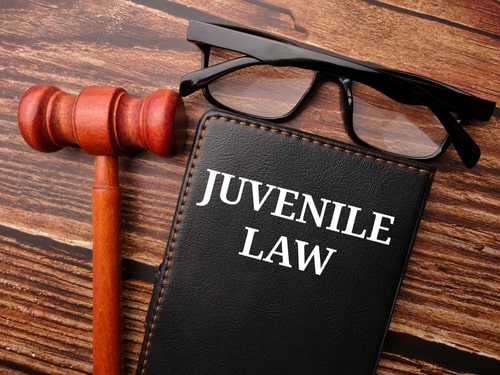 Juvenile criminal law is a sensitive and specialized branch of the criminal justice system that protects and rehabilitates children and minors charged with an offense. Unlike the adult criminal justice system, the juvenile criminal justice system aims to balance protection, deterrence, rehabilitation, and accountability. If you are the parent of a juvenile involved in a criminal situation, contact an attorney immediately to ensure your son or daughter has the legal guidance and protection they need.
Juvenile criminal law is a sensitive and specialized branch of the criminal justice system that protects and rehabilitates children and minors charged with an offense. Unlike the adult criminal justice system, the juvenile criminal justice system aims to balance protection, deterrence, rehabilitation, and accountability. If you are the parent of a juvenile involved in a criminal situation, contact an attorney immediately to ensure your son or daughter has the legal guidance and protection they need.
Four Important Principles of Juvenile Criminal Law
The following are four essential principles that act as the crucial foundation of juvenile criminal law, including:
-
Protecting rights and interests of juveniles – One of the most important aspects of juvenile law is protecting the rights of minors and children. Consequences may include fines, probation, and community service, depending on the seriousness of the juveniles’ conduct. In especially rare cases, the juvenile may be detained at a detention center for juveniles.
Understanding What Constitutes Reckless Driving in Illinois
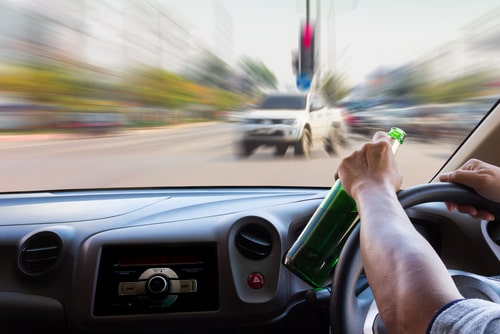 Reckless driving refers to the operation of a vehicle with deliberate or indeliberate disregard or lack of attention to the safety of people or property. This is a significant issue in Illinois since reckless driving offenses can easily cause serious injuries or even death. As a result, Illinois has strict laws that penalize those who commit reckless driving offenses. Therefore, if you are facing these charges, it is essential to contact a traffic violations attorney to ensure your interests are adequately protected during your case.
Reckless driving refers to the operation of a vehicle with deliberate or indeliberate disregard or lack of attention to the safety of people or property. This is a significant issue in Illinois since reckless driving offenses can easily cause serious injuries or even death. As a result, Illinois has strict laws that penalize those who commit reckless driving offenses. Therefore, if you are facing these charges, it is essential to contact a traffic violations attorney to ensure your interests are adequately protected during your case.
Important Factors Regarding Reckless Driving
Behind every reckless driving charge is the assertion that the vehicle’s operator knew how they were driving was dangerous, yet they failed to adhere to traffic guidelines because they were indifferent to the consequences of their actions. Moreover, recklessness can be expressed in multiple forms. Some of the most common instances of reckless driving include DUI, speed racing, not adhering to traffic signals, or even aggressive driving behavior, showing high indifference to the evasions they pose to and against road commuters legally observant of road rules and laws.
Important Facts to Know About Underage Drinking in Illinois
 While many view underage drinking as a right of passage, underage drinking is a crime in Illinois that is not taken lightly. Being charged with a crime as a juvenile can be a very scary experience, both for the alleged juvenile offender and the offender’s parents. Suppose you are a minor who has been arrested for underage drinking, or you are the parent of a minor who was arrested for allegedly drinking alcohol. In that case, it is essential to understand the potential penalties for underage drinking and how a criminal defense attorney can greatly assist the juvenile at this time.
While many view underage drinking as a right of passage, underage drinking is a crime in Illinois that is not taken lightly. Being charged with a crime as a juvenile can be a very scary experience, both for the alleged juvenile offender and the offender’s parents. Suppose you are a minor who has been arrested for underage drinking, or you are the parent of a minor who was arrested for allegedly drinking alcohol. In that case, it is essential to understand the potential penalties for underage drinking and how a criminal defense attorney can greatly assist the juvenile at this time.
What Are the Penalties for Underage Drinking?
As is true in many other parts of the country, Illinois takes underage drinking very seriously. If a minor, who is someone younger than 21, is caught possessing, consuming, or purchasing alcohol, they may be charged with a Class A misdemeanor. This can be punishable by up to one year in jail and a fine reaching as high as $2,500. To make the matter even more severe, minors may have their license suspended for up to six months, regardless of whether they are operating a vehicle at the time. Minors should also think twice before using fake identification, as doing so may constitute the felony offense of possessing a fraudulent ID card.
Understanding Reasonable Suspicion in the Context of a DUI Traffic Stop
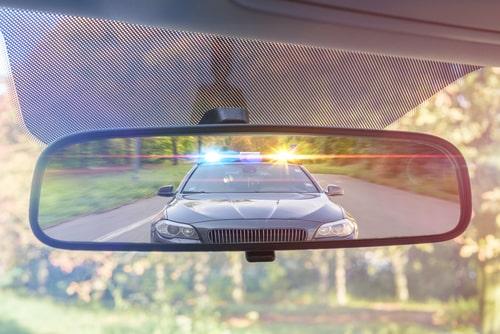 Reasonable suspicion is a key legal concept, especially in the context of a DUI traffic stop. In order for a police officer to pull over a driver on suspicion of DUI, they must have reasonable suspicion that the driver is under the influence of alcohol or drugs. Failure to establish this could result in suppressed evidence or charges being dismissed. If you have been arrested, contact a DUI attorney right away to ensure the facts of the case can be examined and the process of building your legal defense can begin.
Reasonable suspicion is a key legal concept, especially in the context of a DUI traffic stop. In order for a police officer to pull over a driver on suspicion of DUI, they must have reasonable suspicion that the driver is under the influence of alcohol or drugs. Failure to establish this could result in suppressed evidence or charges being dismissed. If you have been arrested, contact a DUI attorney right away to ensure the facts of the case can be examined and the process of building your legal defense can begin.
What You Need to Know
In the context of a DUI stop, reasonable suspicion may be established by a variety of factors, like out-of-control driving, excessive speeding, a broken taillight, driving too slowly, erratic lane changing, and more. These factors may be observed by an officer prior to initiating a traffic stop. Once a driver has been pulled over, an officer may take further action, such as administering field sobriety tests or requesting a breathalyzer test, based on their observations and assessment of the situation.
What You Should Do If You Have Been Charged with Domestic Violence
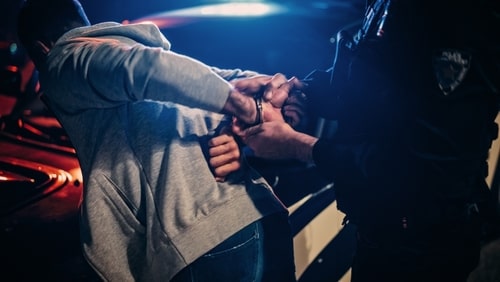 Domestic violence is a serious offense that can have extremely severe legal and personal consequences. If you have been charged with domestic violence, taking the situation seriously and taking steps to protect your rights and interests is essential. Remember, the first thing you should do if you are in this situation is to hire a criminal defense attorney. A domestic violence conviction can devastate someone’s life, making it imperative that you work with an attorney who will advocate for your rights and try to secure a favorable case outcome.
Domestic violence is a serious offense that can have extremely severe legal and personal consequences. If you have been charged with domestic violence, taking the situation seriously and taking steps to protect your rights and interests is essential. Remember, the first thing you should do if you are in this situation is to hire a criminal defense attorney. A domestic violence conviction can devastate someone’s life, making it imperative that you work with an attorney who will advocate for your rights and try to secure a favorable case outcome.
Steps to Take When Facing Domestic Violence Charges
-
Hire an Experienced Criminal Defense Lawyer – One of the most important things you can do if you are charged with domestic violence is to hire a qualified criminal defense lawyer. Your lawyer can help you understand your legal rights and options, provide guidance and support throughout the legal process, and work to protect your interests and reputation.
Considerations for Parents of a Juvenile Offender
 As the parent of a juvenile offender, it can be difficult and emotional to see your child involved in a criminal situation. Furthermore, having the first idea of what to do can be even more challenging. For any parent approaching this situation, it is essential to understand how to proceed and support your child during this difficult time.
As the parent of a juvenile offender, it can be difficult and emotional to see your child involved in a criminal situation. Furthermore, having the first idea of what to do can be even more challenging. For any parent approaching this situation, it is essential to understand how to proceed and support your child during this difficult time.
Navigating a Juvenile Criminal Case
First and foremost, working with an experienced juvenile defense attorney is imperative. A good attorney can help you understand the charges your child is facing and can work to ensure that your child’s rights are protected throughout the legal process. An attorney can also help you navigate the juvenile justice system, which can be complex and confusing. Your attorney may also advise you on different ways to support your child.
It is also essential to communicate openly and honestly with your child. Talk to your child about what happened, and help them understand the seriousness of the situation. It will not be easy to have these conversations, but it is crucial to be honest with your child and to provide them with support and guidance.
How to Challenge an Illinois Secretary of State Decision
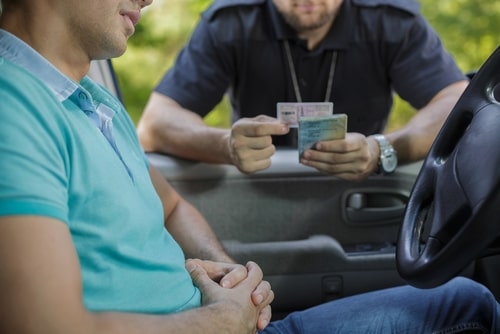 The Illinois Secretary of State provides two kinds of administrative hearings for people whose driving privileges have been suspended or revoked: formal and informal hearings. Many people who have been through the hearing process before can be denied reinstatement.
The Illinois Secretary of State provides two kinds of administrative hearings for people whose driving privileges have been suspended or revoked: formal and informal hearings. Many people who have been through the hearing process before can be denied reinstatement.
It is important for any person dealing with an administrative hearing in Illinois to be sure that they retain legal counsel because an experienced attorney can make a world of difference in the potential outcome to a case. In many cases, people who were denied license reinstatement can achieve more favorable outcomes at new hearings.
Administrative Review of Hearing Decisions
While many cases may be settled at hearings, Secretary of State decisions are subject to Circuit Court review and reversal. To seek review of a Secretary of State decision, a driver needs to file a Complaint seeking Administrative Review no less than 35 days within the date a driver receives a denial order.
Should I Hire a Lawyer for a Traffic Ticket?
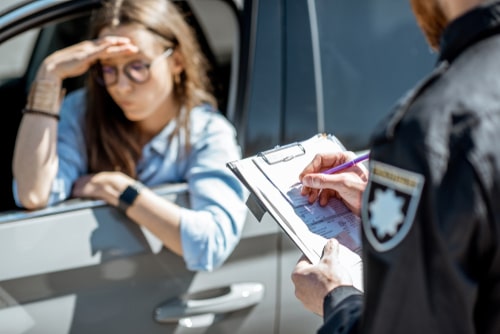 People all over Illinois receive citations for a variety of traffic offenses, and they typically have the right to appear in court to contest the charges. While many people choose to represent themselves in these cases, it can be important for a person to consider a lawyer in some situations.
People all over Illinois receive citations for a variety of traffic offenses, and they typically have the right to appear in court to contest the charges. While many people choose to represent themselves in these cases, it can be important for a person to consider a lawyer in some situations.
The potential need to secure legal representation often depends on a driver’s unique personal situation and needs.
Different Needs for Different Drivers
Drivers who receive citations may want to hire an attorney so they can have peace of mind that their citation is being handled correctly and they will have a better chance at the most favorable outcome. This may include dismissal of charges or amendments to the ticket.
There are many other groups of people for whom legal representation is recommended. Any person driving on a commercial driver’s license (CDL) should consider legal representation because the consequences of a traffic offense can significantly influence their ability to earn a living. Individuals who have previous tickets or traffic offenses on their driving records should also consider working with a lawyer because they face increased penalties for additional violations. It is also recommended to work with an attorney if you are either facing a suspension or are currently under a driver’s license suspension.
What is the "Rising Blood Alcohol" Defense in a DUI Case?
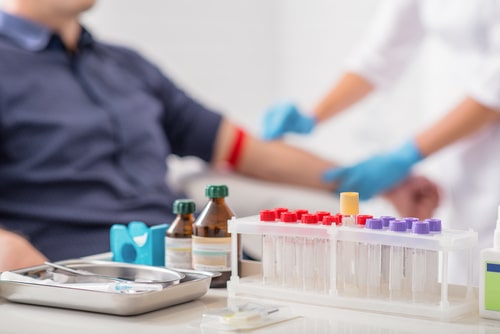
In 49 out of the 50 U.S. states, the legal blood alcohol content limit is .08 percent. When an individual is caught driving with a blood alcohol content above this limit, they are considered to be driving under the influence and can face criminal charges. For commercial drivers, the limit is just 0.05 percent alcohol. The amount of alcohol that it takes to be over the legal limit varies from person to person. Many different factors affect BAC, including body weight, the amount of alcohol consumed, food consumption, and the rate of alcohol consumption. For some people, it may only take two or three drinks to be over the legal limit.

 630-448-2001
630-448-2001






